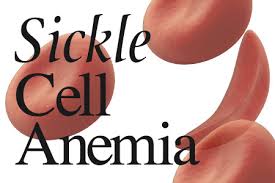By Professor Jennifer Knight-Madden
Research has shown that for some patients with sickle-cell disease (SCD), the stigma they face is more troubling than the disease itself.
In fact, teenagers with SCD are more likely than their peers to consider suicide. Some regret sharing their SCD status with friends and family as they are perceived and treated differently, but not in a positive way.
Some of the stigma comes from the myth that it is a “black disease”. In fact, many non-black people have the trait or the disease. The gene is not related to race, but to malaria prevalence; the trait protects against severe, fatal malaria, and so the gene developed and was passed on in Africa and Asia where malaria is most common.
Through migration and inheritance the genes are now distributed globally in different ethnic groups. A major way that all Jamaicans can care is to become stigma busters. The term “sickler” promotes stigma and should be replaced by “person living with SCD”, thereby not defining their whole personhood by their disease.
Another myth states that people with SCD are unintelligent. Whereas some people with SCD have strokes, which impair learning, others do not; some qualify and function as doctors, PhDs, administrators, artists, nurses, researchers, teachers, and in many other professions.
Jamaicans can care by helping to ensure that each child with SCD is enabled to achieve their potential.
Employers play a very important role by hiring affected patients and parents of affected children. A major stressor is the inability to find employment, even for those who suffer few complications and are seldom unwell. In the workplace, measures such as being able to avoid very cold environmental temperatures, to put a leg affected by an ulcer up on a stool, and/or being able to go to the clinic for preventative care can all make a difference.
Teachers, guidance counsellors and school nurses can make a significant impact on the lives of children. In a paper co-authored by Nurse Normal Lewis and Esther Tyson (Journal of School Health 2001), specific actions that are helpful at every age are detailed. Briefly, among others, these professionals may:
• Notice signs of SCD, such as jaundice, swellings of the hands or feet, frequent bone pain, and suggest to the parents that the child be tested;
• Help other students to understand more about the disease, decreasing stigma when children have jaundice, delayed puberty, leg ulcers, frequent absences and other complications, and ensuring that students understand that SCD and its complications are not contagious;
• Allow affected children opportunities to drink during class and more frequent bathroom breaks;
• Permit students with leg ulcers to attend school and put the affected leg on a stool;
• Ensure that students are not forced to do excessive physical activity triggering bone pain, and that they are not failed in physical education because of their physical limitations;
• Alert parents if there is a change in how well the child is learning, which may be a sign of a silent stroke, and arrange for appropriate psychoeducational testing and additional learning resources if needed;
• Call parents quickly if a complication occurs at school, such as sudden pallor or high fever, which may be signs of serious complications;
• Rally other parents to donate blood when a child at their school is in need;
• Help in guiding students to appropriate career choices;
• Encourage all students to know their own sickle status and the attendant risk of having affected children when they grow up.
SCD is a common lifelong disease in Jamaica. If we learn more about SCD and show compassion and empathy towards those affected, we can improve their quality of life, benefit from the contributions that they make to our society and show that we care.
Professor Jennifer Knight-Madden is the director of the Sickle Cell Unit at the Caribbean Institute for Health Research. (Jamaica Observer)














